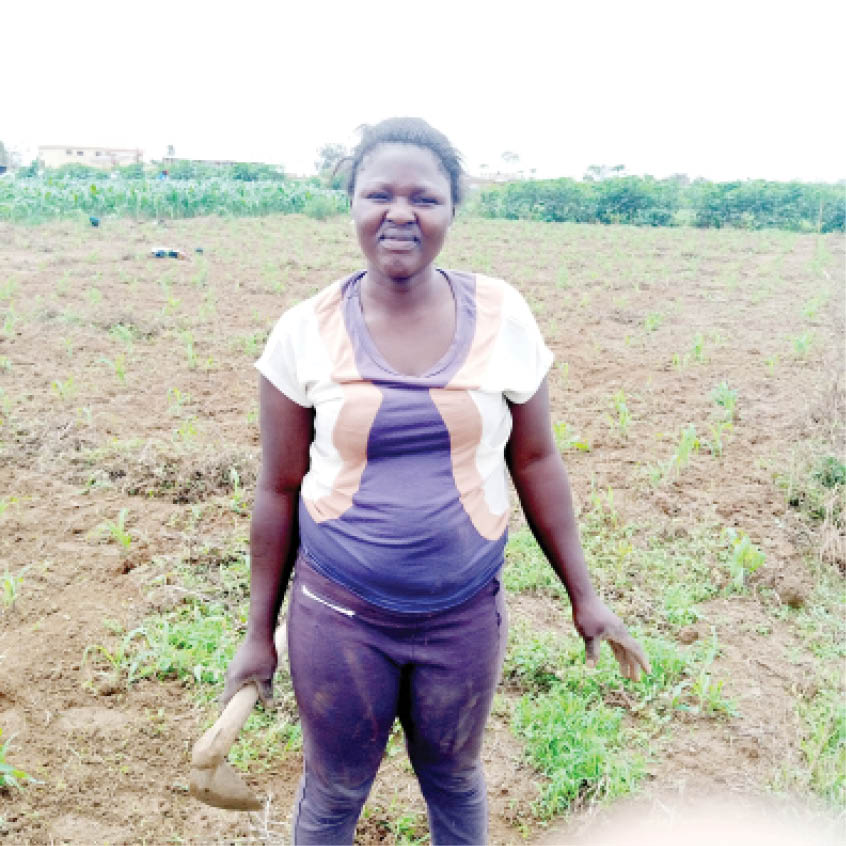In Plateau, women dominate farms – and men know why
In Plateau State, investigations have shown that women are gradually taking over farm work from their male counterparts. They are equally dominating other unskilled manual jobs that were hitherto considered exclusively for the men. APPLY: Federal Roads Safety Corps recruitment 2021 Abba Kyari: Why I attended Obi Cubana’s mum burial Daily Trust observed that women […]

A woman in her farm near Jos, Plateau State
In Plateau State, investigations have shown that women are gradually taking over farm work from their male counterparts.
They are equally dominating other unskilled manual jobs that were hitherto considered exclusively for the men.
- APPLY: Federal Roads Safety Corps recruitment 2021
- Abba Kyari: Why I attended Obi Cubana’s mum burial
Daily Trust observed that women now dominate farm sites in the state.
Many women who spoke with our correspondent said they engaged in farming to support their husbands, who are into other jobs, especially as the state has abundant fertile farmlands and farming is the commonest thing to do in the absence of any other professional job.
However, investigations by our reporter have revealed that some men avoid their responsibilities and rather prefer to engage in trivial things that are inimical to family needs, including inordinate social activities.
Regardless of the reasons given by the women for dominating the farms, it shows that ‘what a man can do, a woman can do better,’ according to a popular saying.
More often, male farmers would rather keep mum on this situation, but this time, some of them around Jos, the state capital, where our correspondent visited, spoke out
Dayyib Zachariah Adam, who is the chairman of the farmers association in Gengere ward, said the trend began with widows who must take care of their children without anybody to help them.
The 65-year-old Adam, who has been farming for 26 years, said anyone in such women’s shoes would venture into farming, particularly now that husbands’ families hardly take care of their late brothers’ children.
He explained that a lot of women became widows as a result of ethno-religious crisis in the state as men are mostly victims.
“So they have to get up and go into farming to sustain their families. We are in full support of the women who have joined farming to survive because generally, women are supposed to help their husbands in providing for the family if the husband is lacking, and even more so when the husband is late. Generally, however, it is a good thing that women are joining farming and even dominating it,” he said.
He said male farmers did not feel challenged that women are doing more in farming than men; rather, they feel more relieved and happy that they are helping to lessen the burden on their husbands/families.
He advised those that are idle to join their fellow women in farming activities or other forms of business to help not only their households but the society at large.
He pleaded with the government, private bodies and non-governmental organisations to come to the aid of these women by providing them with farm implements and fertilisers to encourage them.
Another farmer, Mallam Bello Ali, a 55-year-old man, who revealed that he had been farming since he was a teenager, said some of the women went into farming because their husbands did not want to take the responsibility of their homes.
He challenged the men to rise up and take responsibility, or at least support the women because more often, it is the children who support their mothers on the farm.
On his part, Bulus Wari, 39, said the situation was generally due to the high rate of poverty and lack of employment in the land, thereby leaving a lot of women without any option than farming.
Wali, who has been farming for 10 years now, further said he felt challenged because from time immemorial, men were the ones known for farming.
Some women who spoke with our correspondent said they were actively involved in farming because of less financial support from their husbands.
“We have to move out to get food for our children, especially now that things are very difficult economically. And the only decent option available to some of us now is farming,’’ Deborah John, one of the women, said.
